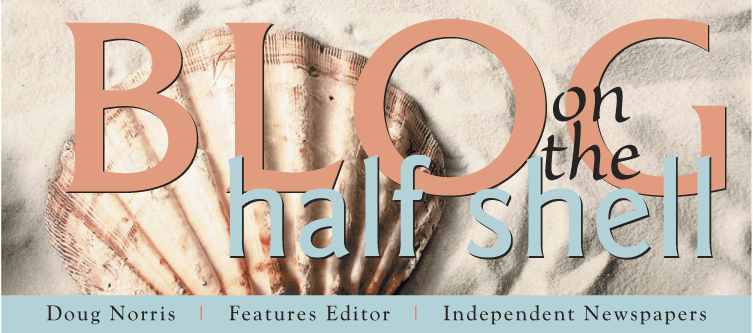The Boston Globe, the flagship newspaper of New England, is bailing water like most municipal dailies these days – in part because the Land of the Bean and the Cod means nothing to the beancounters and codswallop accountants at The New York Times. But that hasn’t stopped the Globe’s writers and editors from giving us a good read. Posted yesterday on boston.com was a list of the 100 essential New England books. Not all of the works are set in New England; some are stories set elsewhere but written by natives or people who came to the region to study or work. Like all good lists, there’s plenty to argue about. A white whale takes the top spot (Herman Melville’s “Moby-Dick”) on the list, which makes way for ducklings (of Robert McCloskey fame) at No. 3, before concluding with a gorging caterpillar (Eric Carle’s “The Very Hungry Caterpillar”) at 100.
Rhode Island’s contributions are somewhat minimal. The Ocean State first appears at 14 in Edith Wharton’s “Ethan Frome,” the story about a poor New England farmer and a love triangle that develops, mentioned because Wharton spent much of her childhood in Newport. At 23 is “Breath, Eyes, Memory,” by Edwidge Danticat, a coming-of-age story about a woman who moves from Haiti to New York by an author who went to Brown.
The first truly Rhode Island tome comes in at 30 – Mike Stanton’s biography of former Providence Mayor and federal prisoner (now a Rhody radio blowhard) Buddy Cianci, “The Prince of Providence.” King Philip’s War is at the crux of Nantucket author Nathaniel Philbrick’s “Mayflower,” ranking 36, which explodes the myth of America’s origin story as a place where friendly American Indians and Colonists enjoyed being neighbors. At 40, Kingston’s own Jhumpa Lahiri earns a nod for “Unaccustomed Earth,” the short-story collection Globies chose to represent her impressive oeuvre. Providence-born Edwin O’Connor makes the list at 51 for “The Last Hurrah,” a look at old-style New England politics that made a legend out of Boston Mayor James Curley (who served in office while in prison). At 62, famed Providence horrormeister H.P. Lovecraft is noted for the best of his short stories, “The Call of Cthulhu.”
Of course there will be quibbles. John Updike, who lived in and wrote about Massachusetts and Pennsylvania, makes the grade (at 60) with “Couples.” Even though “The Witches of Eastwick,” about three middle-aged women in an R.I. community loosely based on the town of East Greenwich and the village of Wickford, was by far the more popular book.
Nathaniel Hawthorne gets props (at 19) for “The Scarlet Letter,” although no list of top New England books would be complete without his “The House of Seven Gables” or collections of sketches and short stories. Just as Lahiri’s short-story collection, “Interpreter of Maladies,” and novel, “The Namesake,” are also deserving. But you can understand why the editors stuck by the one book per author rule.
From a Rhody-centric perspective, it’s surprising that John Casey’s South County-based “Spartina” didn’t make the cut. Nor anything by David Macauley (“Mill,” “Castle,” “The Way Things Work”) or Chris Van Allsburg (“The Polar Express,” “The Widow’s Broom”).
What is your favorite story set in Rhode Island (or written by a Rhode Islander)?
Monday, June 15, 2009
Subscribe to:
Comments (Atom)

